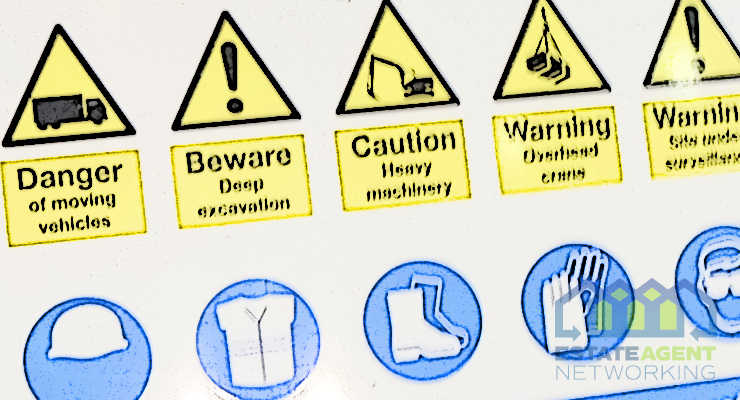Top B2B E-commerce Application Development Trends in 2024-25
The B2B eCommerce landscape is always evolving, leveraging technologies so advanced that firms can enhance and refine the customer journey from search to delivery. The important trend of modern B2B eCommerce is based on digitalization.
Addition to artificial intelligence (AI), and the integration of the eCommerce platforms and other software used for resources, warehouses, and supply chain management. Analyzing the conditions that promise to ensure the success of B2B e-commerce in the future, we are focusing on the context that is gradually emerging at the turn of 2024.
Leading Development Trends for B2B E-Commerce Applications in 2024
1. AI-Driven Customization
- A very prominent trend in the b2b ecommerce web development is the use of artificial intelligence that is selling intelligence to provide customized content.
- AI algorithms are being utilized in organizations as a means of processing information generated through client interactions, relevant choices and habits to provide consumers with relevant goods and services, and deliver product promotions.
- Such personalization is not only a complete benchmark for the user experience but also raises the bar for conversion, making AI a core part of any B2B e-commerce website. For businesses looking to leverage these advanced trends, partnering with a custom software development company ensures tailored solutions that meet unique B2B requirements.
2. Optimization for Mobile
- With more B2B consumers making purchases through their mobile devices, b2b ecommerce website development must have a focus on mobile friendly. For reaching this audience the mobile-friendliness of the e-commerce platforms used should be guaranteed.
- Engaging with the web ist progressive mobile design, the ease of navigation, and the time it takes to load the webpage for the customers to make their purchases is fundamental to shopping. When companies begin paying for b2b ecommerce platforms the need for mobile compatibility will only grow.
3. Solutions for Headless Commerce
- Headless commerce is gradually emerging as the best model suitable for developing b2b ecommerce applications.
- Using the Model View Controller business model, companies are able to provide distinct and personalised interfaces to the consumers of the company’s products, which is not tied to the back-end processes and maintained separately from them.
- This flexibility lets the necessary updates and innovations within the B2B market happen much faster, and companies can gain an advantage over their rivals.
4. Development Based on APIs
- An implementation of an API-first principle is becoming critically essential for b2b ecommerce web development. Among them there is the focus on the API first approach, which requires application programming interfaces to be created alongside the products and services to be built from the start allowing integration with third party services and applications.
- As such, the formation of alliances enables the e-commerce operating businesses to foster the capabilities of their platforms by making it easier to incorporate additional functionalities and to adapt to emerging trends.
5. Models of Subscription and Regular Billing
- Current trends in B2B buying suggest that the subscription-based business models are revolutionizing buying processes. Many firms use these models to develop reliable sources of predictable income and establish customer loyalty.
- This trend can be observed in b2b ecommerce platforms that incorporate features such as subscription billing services to ensure that the businesses receive consolidated billing of their products while on the other side the customers are offered an easy way of purchasing the products of the businesses.
6. Advanced Security Methods
- By constantly evolving the character of cyber threats, the use of proper security measures in b2b ecommerce software solutions UK is mandatory. Data security at the business level, to prevent and limit risks of data theft or leakage, must be supported by encryption, multi-factor authentication techniques, and formal security auditing at least on a quarterly basis.
- For b2b relationships, it is seen that the client has confidence that the information they share is secure, and this is possible if the internet connection is secure.
7. Both virtual reality and augmented reality
- Augmented reality and Virtual Reality are expected to disrupt the B2B shopping experience. When implemented in b2b ecommerce application development, these technologies help to create product presentations whereby customers can see the product in their own setting.
- In fact this kind of approach can help to increase the amount of understanding by the audience of the actual products and facilitate the purchase decision, which would make it appealing.
8. Integration of social business
- The incorporation of social commerce into its B2B strategies is now a necessity. Many companies use social media sites to target potential clientele, interact with them and make sales directly.
- This trend not only opens up a customer base, but also makes the brand’s appearance improved and more exquisite.
- A proper incorporation of social commerce features within the B2B Ecommerce web development can open up new frontiers for business.
9. Blockchain Technology for Communication
- Application of distributed ledgers is most prominent in B2B e-commerce where it is expected to enact positive changes in terms of transparency and security of business dealings.
- Blockchain technology can be incorporated in B2B ecommerce software solutions UK hence enhancing security of transactions while providing better ways of tracking transactions in the supply chain.
- It helps enhance confidence through the partners and the customers by eliminating some of the known tricks about fraud and other issues linked to supply chains.
10. Statistics and Insights from Data
- It is a well-known fact that there is nothing more important for the B2B market players than the utilization of analytical data.
- Different analytics are implemented into the b2b ecommerce platforms that add much worth in understanding customers’ and sales, and factories. Thus, this type of data works for businesses as opportunities to better their functioning, perfect advertising campaigns, and enhance customer relations and satisfaction in the process of overall business growth and profits.
11. Initiatives for Sustainability
- Currently, more and more companies strive to provide their solutions sustainable and B2B e-commerce is not an exception. Business entities are making their b2b ecommerce website development having environment friendly measures to meet the demands of their customers who are increasingly going green.
- This includes supporting sustainable products, minimizing the carbon footprints and increasing the product transparency.
12. Strategies for Multichannel Management
- The trend now is that there is a move toward multichannel selling, which is gradually changing the face of B2B e commerce. Online channels are used by companies as they diversify their sales approaches, turning b2b ecommerce application development into a multitasking single platform.
Conclusion
Looking into the details, this suggests that in 2024 the B2B e-commerce environment will change in response to the development and emerging needs. If companies concentrate on such trends as AI personalization, mobile compatibility, headless commerce, and data collection, it will be possible to improve b2b digital selling platforms and adapt them for the given climate. Successful adoption of these trends will strengthen optimistic functionalism and relationship with customers for increased future success.









